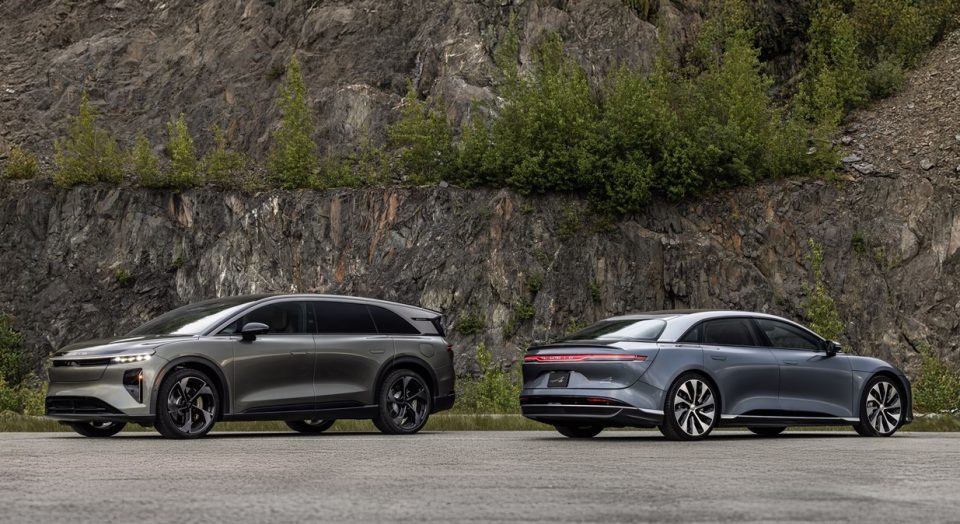Lucid Group (NASDAQ: LCID), best known for building electric vehicles that push technological boundaries, is making a strong move to deepen and secure its supply chain for critical minerals essential to EV manufacturing. The company has teamed up with several key players in the minerals sector, such as Alaska Energy Metals, Graphite One, Electric Metals, and RecycLiCo, to form a new collaborative effort aimed at bolstering domestic mineral production for the American automotive industry.
This initiative, known as the Minerals for National Automotive Competitiveness Collaboration (MINAC), is designed to accelerate the development of critical mineral resources within the United States to support automakers and their Tier 1 suppliers nationwide. What’s notable here is the focus on producing and procuring minerals domestically, a clear step toward reducing dependence on foreign sources and enhancing the resilience of the American EV supply chain.
Electric vehicles rely heavily on a handful of minerals like nickel, manganese, graphite, and cobalt. These materials are integral components of lithium-ion batteries, which power the vast majority of EVs on the road today. Nickel, for instance, contributes to longer vehicle range and improved battery life by enabling higher energy density in battery cells. Alaska Energy Metals, out of Anchorage, is leading efforts to tap into a substantial nickel resource in Alaska’s interior to meet these needs.
Similarly, Electric Metals USA is focusing on manganese, a mineral essential for improving battery energy density and safety. Their project in Emily, Minnesota, represents one of the few domestic sources of manganese, filling a critical gap in the U.S supply chain since there is currently no commercial manganese production within the country.
Graphite One is tasked with developing graphite production facilities across the U.S., including synthetic graphite manufacturing in Ohio and natural graphite mining in Northern Alaska. These efforts are expected to come online by 2028, and Lucid has already secured agreements to purchase these materials once available.
In addition, RecycLiCo is working on refining technologies that recover lithium, cobalt, nickel, and manganese from recycled lithium-ion batteries and manufacturing scraps. This upcycling process aligns with growing global demands for sustainable and responsible supply chains, enabling more circular and environmentally conscious production practices.
MINAC is about more than just resource extraction. The collaboration aims to identify and overcome barriers to commercializing domestic minerals, facilitating quicker adoption among automotive manufacturers. It promotes active coordination between the mining sector and vehicle makers to ensure the flow of materials is efficient, reliable, and meets quality standards critical for electric vehicle production.
By establishing offtake agreements for these American-produced minerals, MINAC partners hope to keep the supply chain vibrant and as homegrown as possible. This means building a more self-contained ecosystem where raw materials, components, and finished vehicles are largely sourced and made in the U.S.
Marc Winterhoff, Lucid’s Interim CEO, emphasized that a domestic supply chain is crucial for manufacturing resilience and job creation, adding that the collaboration is a renewal of the company’s commitment to American innovation and automotive manufacturing.
Alaska Energy Metals CEO Gregory Beischer highlighted the significance of sourcing minerals domestically for better regulatory oversight and environmental standards, as well as reducing reliance on foreign mining operations often associated with risks to human rights and ecosystems. This approach also ties into national security given its benefits for the defense industrial base.
Political leaders from Arizona and Alaska also voiced strong support for the initiative. Arizona Senator Mark Kelly and Representatives Andy Biggs, Eli Crane, and Juan Ciscomani lauded the effort to reduce dependency on foreign adversaries and keep economic benefits within U.S. borders, particularly in states like Arizona that host significant EV manufacturing facilities.
Lucid continues to push the envelope with its award-winning Lucid Air and the upcoming Lucid Gravity SUV, assembling vehicles in its advanced factory in Arizona. As the EV industry grows more competitive, having a reliable local supply of essential minerals may prove to be a game-changer.
Strengthening the entire domestic supply chain from mined minerals to finished vehicles can help stabilize costs, reduce exposure to geopolitical risks, and support quality control. It also creates opportunities for new jobs and economic development in mining, processing, manufacturing, and recycling sectors across the U.S.
The formation of MINAC represents a significant step toward that vision, showing that automakers like Lucid and mineral producers are serious about building a homegrown ecosystem capable of supporting the future of electric vehicles and American manufacturing.

